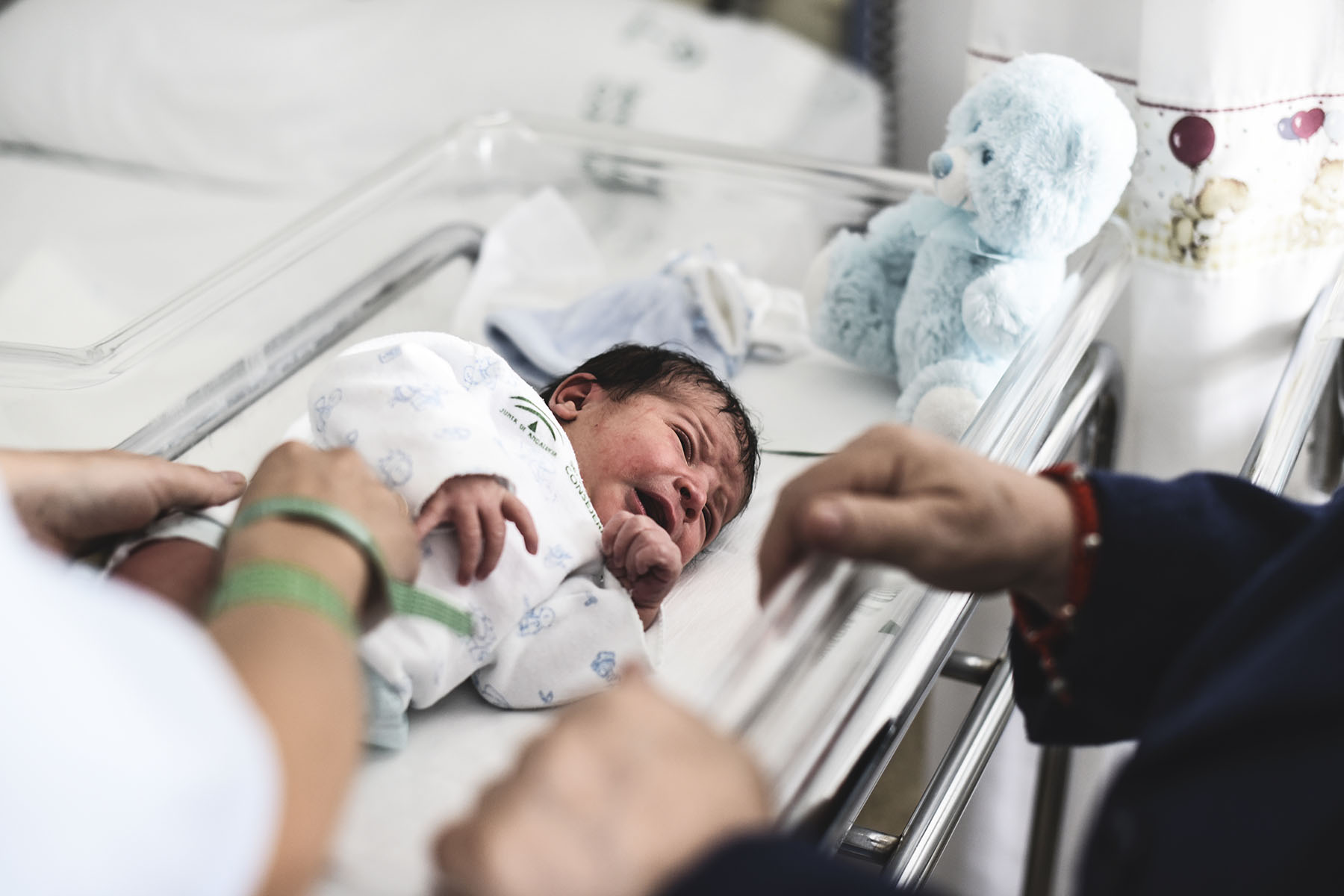The Spanish healthcare system consistently ranks among the best in the world. It’s mostly paid for by taxpayers through social security and covers most of your primary care needs. However, if you want easier access to specialized medical care, such as regular gynecological check-ups or mental health professionals, private health insurance is the way to go.
Explore the topic of women’s healthcare in Spain in the following sections:
- Women’s healthcare in Spain
- Accessing women’s healthcare services in Spain
- Insurance for women’s healthcare in Spain
- Women’s clinics and healthcare centers in Spain
- Sexual health in Spain
- Fertility treatments in Spain
- Abortion laws in Spain
- Maternity care services in Spain
- Menopause in Spain
- Useful resources
Allianz Care
Allianz Care is a world-leader in providing international health insurance. Their range of premiums provide professionally-designed solutions for a variety of expat lifestyles. So, wherever your life takes you, make sure you have the right health protection for you and your family with Allianz Care.
Women’s healthcare in Spain
The Bloomberg Healthiest Country Index routinely names Spain the healthiest country in the world, and with good reason. In 2019, the overall life expectancy of women was 85 years old, and 70% considered their health as good or very good. Moreover, only a small amount of women (21%) smoked cigarettes or participated in harmful drinking.

When they do need it, Spanish women have great access to a high-quality system, called the National Health System (Sistema Nacional de Salud – SNS). It offers (almost) universal health coverage and is paid for by social security.
According to the 2021 Gender Equality Index from the European Institute for Gender Equality (EIGE), the country scores an incredible 91.7 out of 100 points on health. In 2019, 0% of all men and women aged 16–65 and living without disabilities had unmet needs for medical examination (compared to the EU average of 3% for both genders).
Better still, Spain is a pioneer in women’s healthcare and bodily autonomy. The country is a global leader in fertility treatments, and in 2022, it passed a bill that allowed pregnant teenagers aged 16–17 to access abortion without parental consent. A year later, it became the first country in Europe to offer menstrual sick leave for women suffering from incapacitating periods.
Menstrual hygiene products
On 1 January 2023, the VAT on menstrual hygiene products – the so-called ‘pink tax’ – was lowered from 10% to 4%, calling it “essential items, not luxury products.” The government also reduced the VAT on condoms and other forms of non-hormonal birth control.
Tampons (tampones), sanitary pads (toallas higiénicas), and menstrual cups (copa menstrual) are available in all drug stores and supermarkets. The average price of menstrual products depends on your brand, flow, and the size of the box, of course. On average, it costs:
- Pads cost around €2–5
- Tampons cost around €3–8
- Menstrual cups cost around €8.50
If you prefer sustainable menstrual products, you can buy them at:
- Usar y Reusar in Barcelona
- Lelambu in Valencia
Accessing women’s healthcare services in Spain
Residents in Spain can apply for a Spanish health card (tarjeta sanitaria individual – TSI) to access women’s healthcare services. Expats from the EU/EFTA (European Free Trade Association – Iceland, Liechtenstein, Norway, and Switzerland) can also use their European Health Insurance Card (EHIC).

Internationals from outside the EU/EFTA region will need to have taken out travel and healthcare insurance as part of their visa application. Undocumented migrants can also access the women’s healthcare services in Spain but must pay at least 40% of the costs of prescribed medication.
Insurance for women’s healthcare in Spain
The public healthcare system covers all primary care needs, including family doctors, emergency services, treatment, and rehabilitation. However, some medical aid is excluded from state healthcare and requires payment out-of-pocket. This includes private hospitals (hospitales), dentistry, vision care, private nursing, and homeopathic medicines. If you need to compare providers, check out a website such as SaludOnNet.
Approximately 25% of the Spanish population has an added private medical care policy. It is also popular among expats and temporary residents who don’t want – or can’t – sign up for public healthcare. Private medical aid usually costs between €50 and €200 per month, depending on the coverage plan.
You can compare insurance providers and get free quotes on our health insurance page.
Some of the best insurance companies in Spain include:
Women’s clinics and healthcare centers in Spain
Public healthcare centers (centros de salud) and hospitals will cover most of your medical needs. However, there are also several private women’s health centers that offer multidisciplinary approaches. These include treatments such as gynecology, obstetrics, physiotherapy, and general wellness.
Obstetricians and gynecologists in Spain
Obstetricians (obstetras) can help you during pregnancy and childbirth. Gynecologists (ginecólogos or ginecólogas), on the other hand, are specialized in diagnosing and treating issues with the entire female reproductive system. For example, if you want to take a pap test or cancer screening, you can visit a gynecologist. Some healthcare professionals (ob-gyns) are specialized in both (obstetras-ginecólogos).

In 2020, there were 5,909 obstetricians and gynecologists in Spain. With a female adult population of around 20,099,900, that means there was one gynecologist for every 3401.6 women over the age of 18.
Accessing a public healthcare gynecologist proves to be a little strenuous. You’ll need a referral from your family doctor and unless absolutely necessary, regular check-ups do not get covered. Pap smears (Papanicolau) usually only take place every three years, and it’s not always possible to choose which healthcare professional you want to go to.
With private healthcare, you can choose your own gynecologist and schedule an appointment directly with their local private health center. Common gynecological tests include breast ultrasounds, blood tests, and pap tests.
Cancer screenings in Spain
That said, screening for cancer has proven to be effective in prevention and prognosis throughout the country, especially for breast, cervical, and colorectal cancers. Just over 225 in every 100,000 women in Spain gets some form of cancer. This is quite high compared to the world average (178.1 in every 100,000), but low compared to Denmark, where 328.3 in every 100,000 women gets cancer.
Women aged between 50 and 69 are recommended to have a mammogram (mamografía) every two years. However, if you are younger than 50 and have a family history of breast cancer, you can talk to your family doctor about entering the screening program.
Cancer screenings usually happen at local health centers. If a mammogram reveals irregularities, you will be contacted for treatment or additional tests at the nearest hospital.
If you or someone you love has been diagnosed with cancer, you can find support and resources at the non-profit Spanish Association Against Cancer (Asociación Española Contra el Cáncer – AECC).
Women’s mental health services
Uncharacteristically, Spanish mental healthcare services are lacking. In 2022, there were only six clinical psychologists for every 100,000 residents. That is much lower than the EU average of 38 psychologists per 100,000 inhabitants. Worse still, in 2018, Spain had 32,000 registered psychologists, but only 2,300 worked for the public healthcare system.

In 2021, one in five residents suffered from a mental health disorder (e.g., depression or anxiety). Moreover, roughly 9% of Spanish women deal with post-partum depression during their lifetime.
If you’re experiencing mental health issues, you can contact your family doctor or your local medical health clinic for a referral. Unfortunately, you are likely to get better and more personalized help from a private healthcare provider.
Services dealing with eating disorders
At the start of 2021, Spain reportedly had 480,000 people suffering from an eating disorder. This includes anorexia, bulimia, or a binge eating disorder. While all genders can get an eating disorder, over 90% of those identified as women.
Around 5% of all girls and women aged between 12 and 21 suffer from this mental illness. According to the Ministry of Health, the symptoms can sometimes start as early as 8 or 9 years of age.
If you are battling an eating disorder, you can get support from multiple Spanish and English-speaking organizations. These include:
- Association against Anorexia and Bulimia (Asociación Contra la Anorexia y la Bulimia – ACAB)
- Association in Defense of Attention to Anorexia Nervosa and Bulimia (Asociación en Defensa de la Atención a la Anorexia Nerviosa y Bulimia – ADANER)
- Camino Recovery treatment center
- Centro ITEM
- Ita Salud Mental
- Spanish Association for the Study of Eating Disorders (Asociación Española para el Estudio de los Trastornos de Conducta Alimentaria – AEETCA)
- Villa Paradiso
Violence and abuse against women
Despite strict measures taken by the Spanish government, gender-based violence and domestic abuse are on the rise in the country.
In 2021, the National Institute of Statistics (Instuto Nacional de Estadística) reported 30,141 female victims. This number had already risen to 40,481 complaints during the first quarter of 2022, an increase of 17.85% compared to the previous year. Reports of sexist violence also increased by 19.33% (compared to 2021).
The Ministry of Equality (Ministerio de Igualdad) offers a centralized website with support for victims of domestic violence that is available in Spanish, Basque, Catalan, English, Galician, French, and Valencian. It also provides information about victims’ rights, resources, ways to contact law enforcement, and has a quick exit option if you are in an unsafe situation.
If you are in Spain and need urgent assistance, you can call 016 to reach the government’s abuse hotline, or send a WhatsApp message to 600 000 016.
Sexual health in Spain
The numbers of STDs (Enfermedades de Transmisión Sexual – ETS) and STIs (Infecciones de Transmisión Sexual – ITS) have soared in recent years, with chlamydia, gonorrhea, and syphilis as the main culprits. Cases of HIV and AIDS are experiencing a downward trend.
With a referral from your family doctor, you can get free a test for STDs or STIs at a local medical health center. The Open House Medical Center in Madrid also offers consultations in English over the phone, as well as several options for STI testing in-person at their clinic or by yourself at home.
Women’s contraception in Spain
Like sanitary products, anticontraception (anticonceptivos) is widely available throughout Spain. The most common form of contraception is the condom (preservativo), which is available in any drug store, pharmacy, or supermarket.
You can also buy Emergency Contraception and Plan B (píladora del dia despues) without a prescription; it is available over the counter at a pharmacy. Hormonal contraception, including the pill (píldora) and IUDs (DIU), do require a prescription.
In 2023, the government announced it would lower the VAT on condoms and other forms of non-hormonal birth control from 10% to 4%.

Available non-surgical contraception methods include:
- Condom – available without a prescription for between €0.50 and €3 per unit; depending on the brand and quantity
- Birth control pill – available over-the-counter or with a prescription for all women aged 15 and older. Spain offers two types of pills: one containing estrogen and progestin, and a mini-píladora containing only progestin. The latter is recommended for women who are breastfeeding or who have a history of blood clots. The pill costs around €3 with a prescription or €10 without.
- Plan B pill – available over-the-counter for €20, or for free in some regions
- Vaginal ring (anillo vaginal) – available with a prescription. Depending on the household income, a one-month prescription for the vaginal ring costs between €3 and €18.
- Contraception patch (parche) – available with a prescription for €30 per month
There are also a number of surgical contraception options available, including:
- Copper (DUI cobre) and hormonal IUDs (DUI hormonal)
- Contraceptive implant (implante subcutáneo)
- Vasectomy (vasectomía)
- Female sterilization (ligadura de trompas)
Public health insurance covers the cost of all surgical procedures, except for the contraceptive implant. This costs around €60 to get implanted, or €150 without a prescription from a doctor or gynecologist.
Fertility treatments in Spain
Fortunately for women seeking fertility treatment, Spain is a global leader in the industry. In fact, the country performs the most IVF treatments (PDF) in Europe, which, in 2018, was around 140,000 a year.
The treatments covered differ per regional Autonomous Community (Spain has 17). You should check with your family doctor how much is covered before pursuing a treatment like IVF or the ROPA method. Surrogacy is not legal in Spain.
If you are in a heterosexual partnership and you are unsure about your fertility, your first step includes taking a fertility test. This will enable you to determine the appropriate course of action. The cost of the treatment might include the testing fee. If not, it will typically cost between €150 and €300.
Many private fertility clinics offer free online consultations, no waiting lists, and other amenities to make prospective parents feel more comfortable.

If you’re not fluent in Spanish, there are also clinics in the larger cities that offer multilingual services, including:
- IVI Fertility in Alicante, Aravaca (Madrid), Barcelona, Bilbao, Donostia, Las Palmas, Málaga, Manacor (Mallorca), Murcia, Sevilla, and Valencia
- Instituto Bernabeu in Albacete, Alicante, Benidorm, Cartagena, Elche, Madrid, and Palma de Mallorca
- Tambre Madrid in Madrid
- URE Centro Gutenberg in Málaga
- Institut Marquès in Barcelona
Abortion laws in Spain
Abortion is legal in Spain during the first 14 weeks of a person’s pregnancy. If you or the fetus face serious health risks, you can end a pregnancy up to 22 weeks. Terminating a pregnancy beyond that is only possible if the fetus is incompatible with life, or doctors detect an extremely serious and incurable disease.
As said before, pregnant people aged 16 and 17 do not have to have parental consent to get an abortion. However, although it is (in theory) available to anyone in Spain, in practice, access to the procedure can be limited due to conscientious objection from medical professionals. That means they can – legally – refuse to perform the abortion because of moral or religious reasons. Unfortunately (but understandably), there is no public register of doctors in Spain who object to abortion.
Getting an abortion in Spain
There are two methods of terminating a pregnancy. The most common method is a medical abortion by prescribed medication (aborto con pastillas) or surgical abortion (aborto quirúrgico) at a clinic or hospital. Doctors are legally obligated to inform you of your rights and available benefits. You must then wait three days before the termination can take place.
Abortions are either performed in public hospitals, where they are heavily subsidized or free of charge, or in private hospitals, where they cost upward of €360.
Maternity care services in Spain
If you want to have a baby, you can contact your family doctor for a referral to an obstetrician or gynecologist. With private insurance, you can skip the referral process and make an appointment directly with your preferred specialist.

Public healthcare covers most of the prenatal and birthing services, including medical checkups, antenatal tests, scans, and interventions during childbirth. During childbirth, you’ll usually be assisted by a midwife. The doctor is only likely to assist if there are complications or if you require a special procedure.
Spain isn’t big on home births and there are no regulations around the practice. Therefore, expectant parents who want to labor at home should practice due diligence and ensure that backup is available in case of an emergency.
In public healthcare (2020), vaginal delivery costs around €3,400, and a cesarean section cost roughly €4,435. These prices go up exponentially when you give birth in a private medical facility. It’s important, then, to have private health insurance.
Ideally, you should aim to take out health insurance at least six to 12 months before becoming pregnant. Make sure to verify that your insurance provider also covers newborn children.
Breastfeeding in Spain
Breastfeeding is encouraged in Spain. Doing so in public places is commonplace and rarely (if ever) discouraged. However, if you are experiencing breastfeeding difficulties, you can contact your gynecologist. This can be that the baby has trouble latching or you have sore or cracked nipples, for example.
There are also plenty of lactation consultants (consultoras de lactancia or consultoros de lactancia) available. You can find a list on the website of the International Lactation Consultant Association.
Menopause in Spain
Similar to many other countries across the world, talking about menopause is still a taboo in Spain. This phase of life (menopausia) usually starts between the ages of 45 and 55 (on average, at 51). However, as many as one in three women will experience significant psychological changes during the time leading up to menopause (i.e., perimenopause). This can start as early as 35.

Each person undergoes a different menopause, both in symptoms and intensity. A recent study suggests 80% of women experience some kind of menopausal symptom. Members of the trans and non-binary community can also experience menopause-like symptoms when they stop their hormonal treatments.
Symptoms include:
- Hot flashes (bochornos)
- Vaginal dryness (sequedad vaginal) and discomfort
- Irregular periods (reglas irregulares)
- A decline in sex drive (falta de deseo sexual)
- Memory loss (pérdida de memoria) and so-called brain fog (niebla mental)
- Osteoporosis (osteoporosis)
- Joint pain (dolor articular)
- Anxiety (ansiedad) and depression (depresión)
- Night sweats (sudoraciones nocturnas)
- Weight gain (aumento de peso)
- Hair loss (pérdida de cabello)
- Brittle nails (fragilidad en las uñas)
A great way to alleviate the symptoms is by getting hormone replacement treatment (HRT – tratamiento hormonal sustitutivo). You can contact your family doctor or gynecologist for a prescription.
Useful resources
- English Speaking Healthcare Association Spain – a non-profit organization connecting English speakers with healthcare professionals
- Ministry of Equality – official governmental website with information on social equality among different sexes, genders, ethnicities, and sexual orientations
- Ministry of Health – the official government website with information on Spanish healthcare, including a section on gender-based violence and domestic abuse









